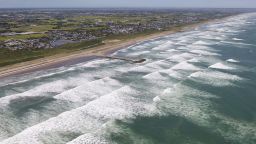The **Krasheninnikov Volcano** in Russia’s **Kamchatka Peninsula** erupted overnight, marking its first activity in **600 years**. This significant event may be connected to a substantial earthquake that struck the region the previous week, according to reports from the **RIA State News Agency** and statements from scientists.
Olga Girina, head of the **Kamchatka Volcanic Eruption Response Team**, confirmed the eruption, noting that it is the first historically verified occurrence since approximately **1463**. Girina suggested a direct correlation between the volcanic activity and the earthquake that occurred on **March 6, 2024**, which triggered tsunami warnings as far away as **French Polynesia** and **Chile**. Following the earthquake, **Klyuchevskoy**, the most active volcano in the area, also erupted.
According to the Institute of Volcanology and Seismology, Girina reported that the last recorded lava flow from Krasheninnikov had not been documented for centuries. The Kamchatka branch of Russia’s **Ministry for Emergency Services** indicated that the eruption produced an ash plume rising to **6,000 meters** (approximately **3.7 miles**). The volcano itself reaches an elevation of **1,856 meters**.
The ash cloud has moved eastward towards the **Pacific Ocean**, with officials confirming that there are no populated areas in its current trajectory. The ministry has issued an orange aviation code in response to the eruption, indicating a heightened risk for aircraft operating in the vicinity.
This volcanic activity highlights the complex relationship between seismic events and geological reactions in the region. Scientists will continue to monitor both the eruption and its potential implications on air traffic and local ecosystems.





































































